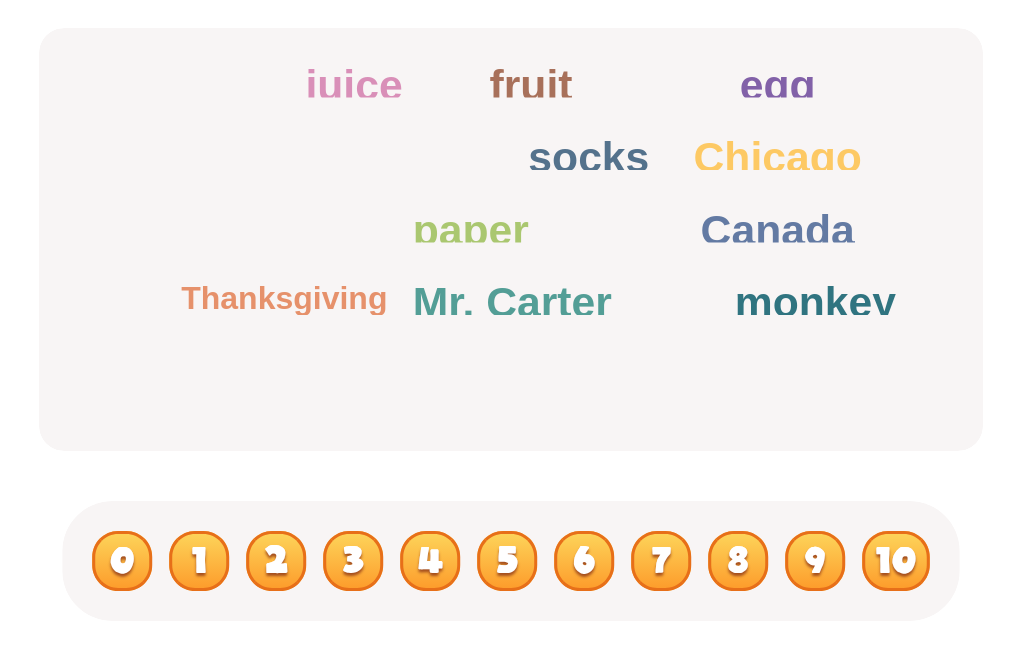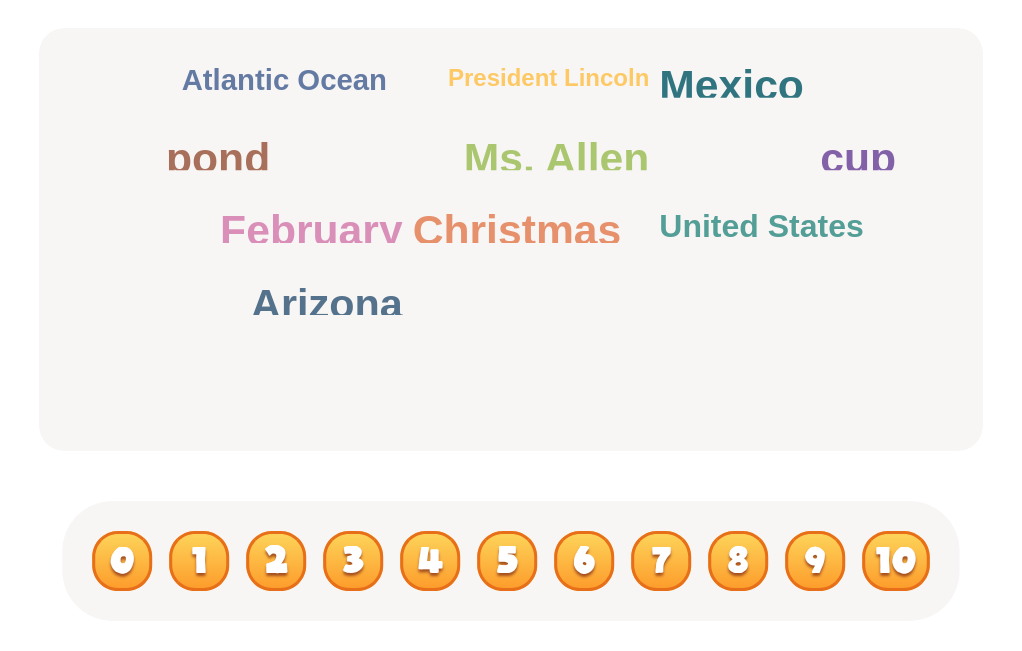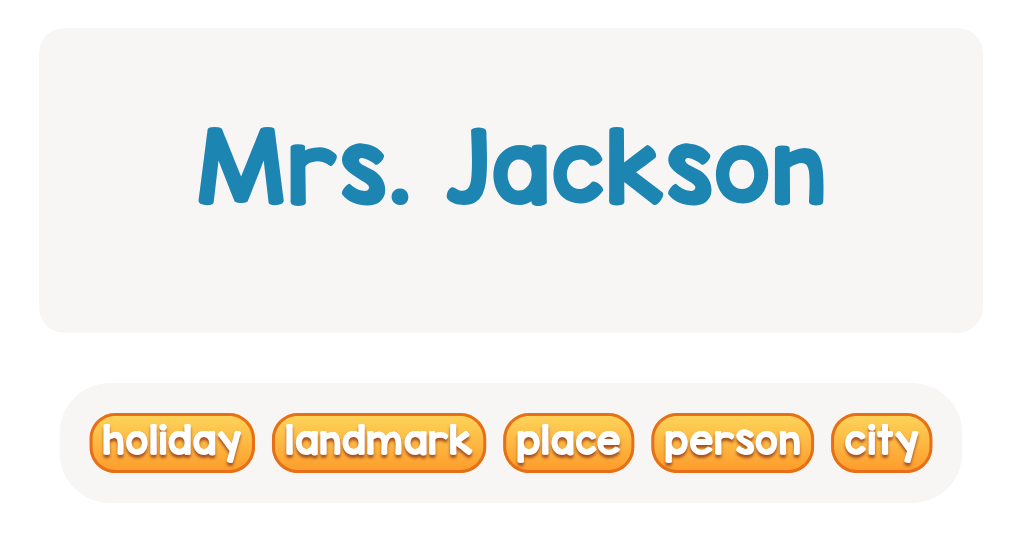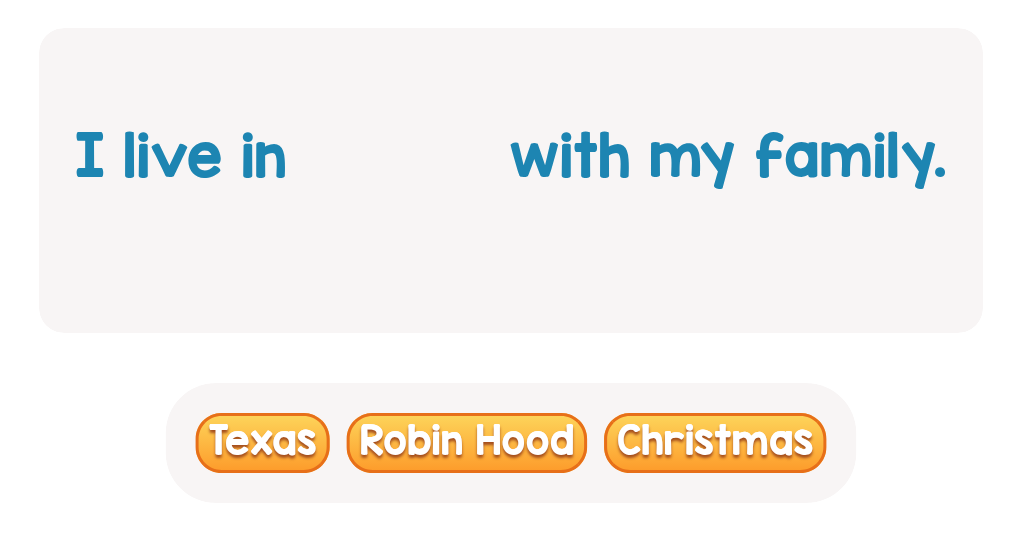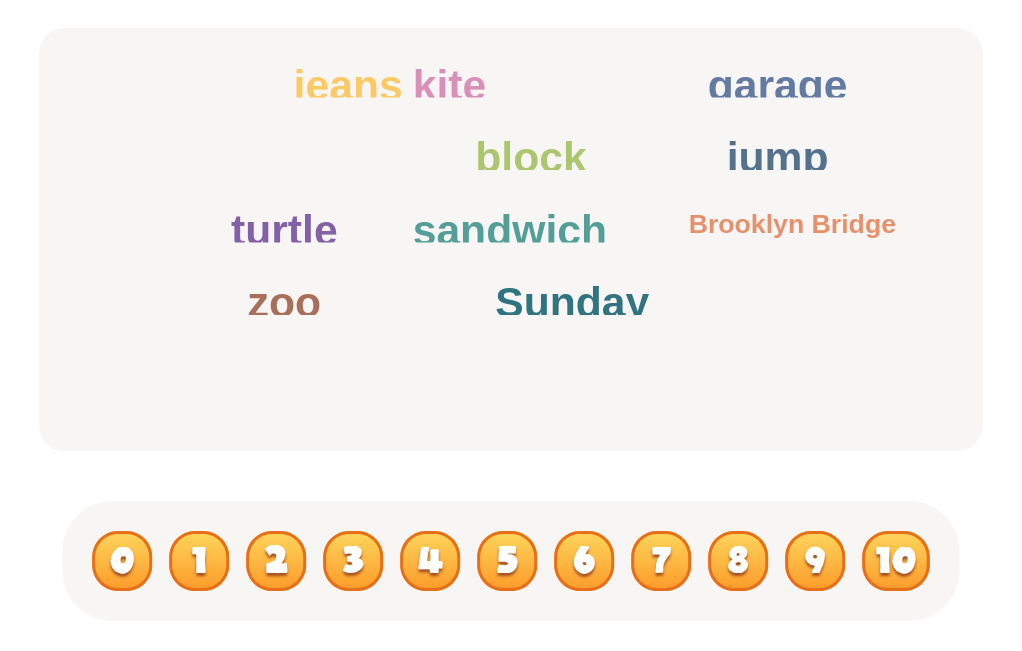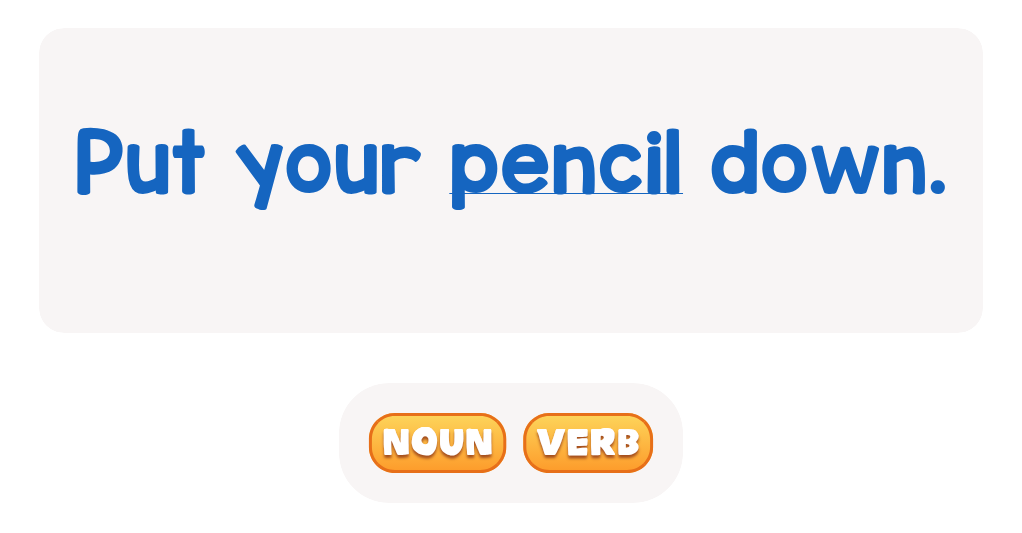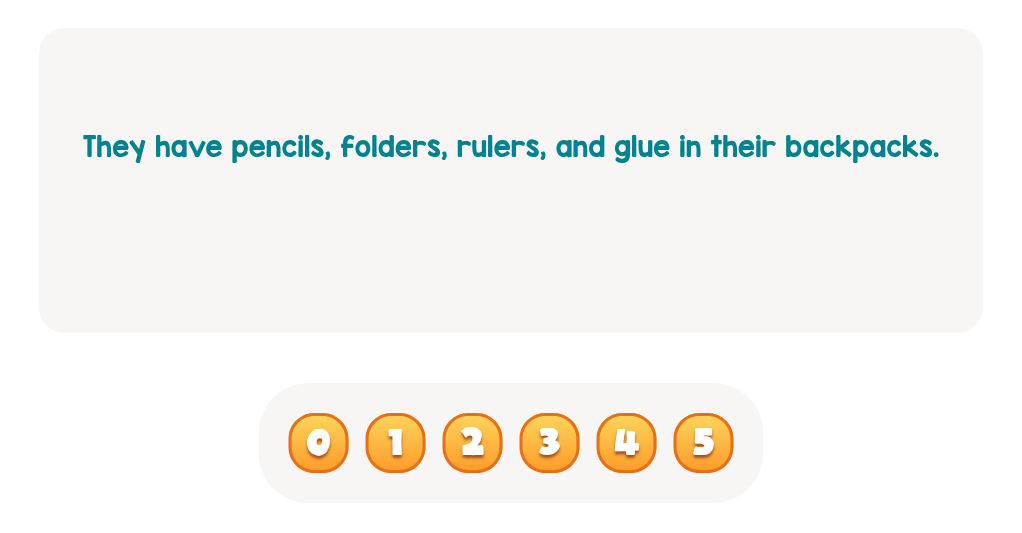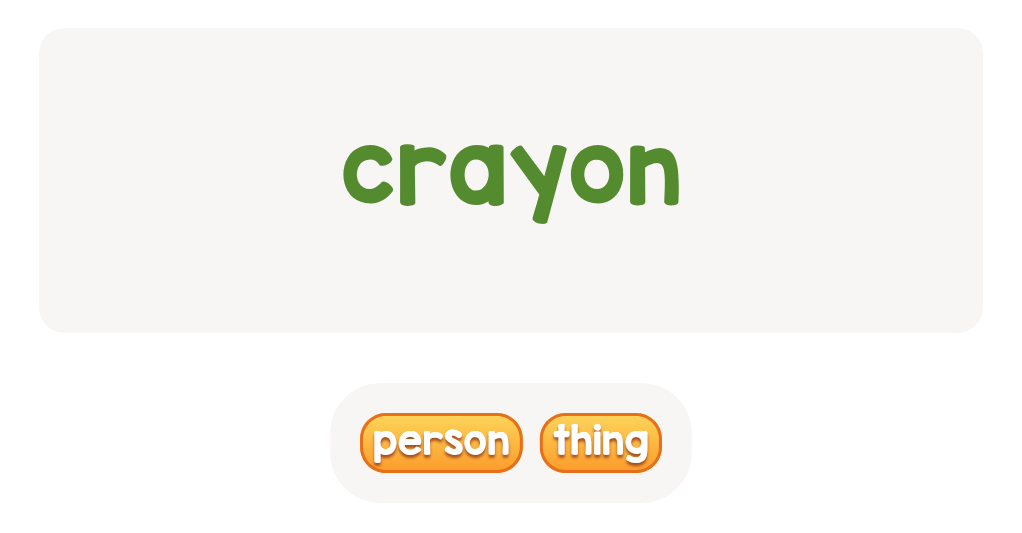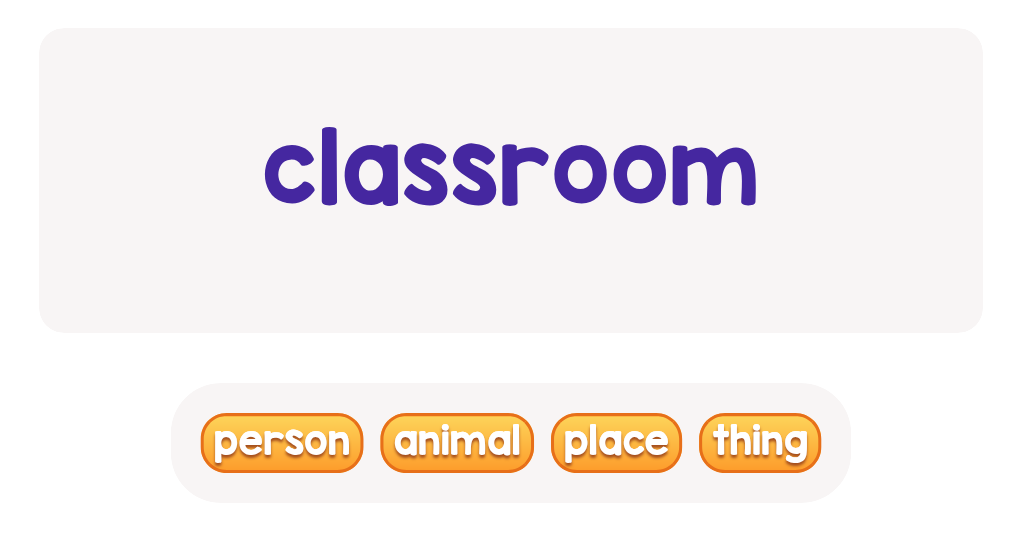Reading Skills Grammar Worksheets for Ages 4-7
7 filtered results
-
From - To
Discover our engaging Reading Skills Grammar Worksheets designed specifically for children aged 4-7. These interactive resources help young learners master essential grammar concepts while enhancing their reading abilities. Our worksheets include fun activities that promote vocabulary development, sentence structure comprehension, and punctuation usage. Each activity is crafted to captivate young imaginations, ensuring a rewarding learning experience. Parents and educators will find these worksheets perfect for reinforcing classroom instruction or home learning. Boost your child's confidence in reading and grammar skills with our thoughtfully designed materials today! Explore our collection and watch your young readers thrive!
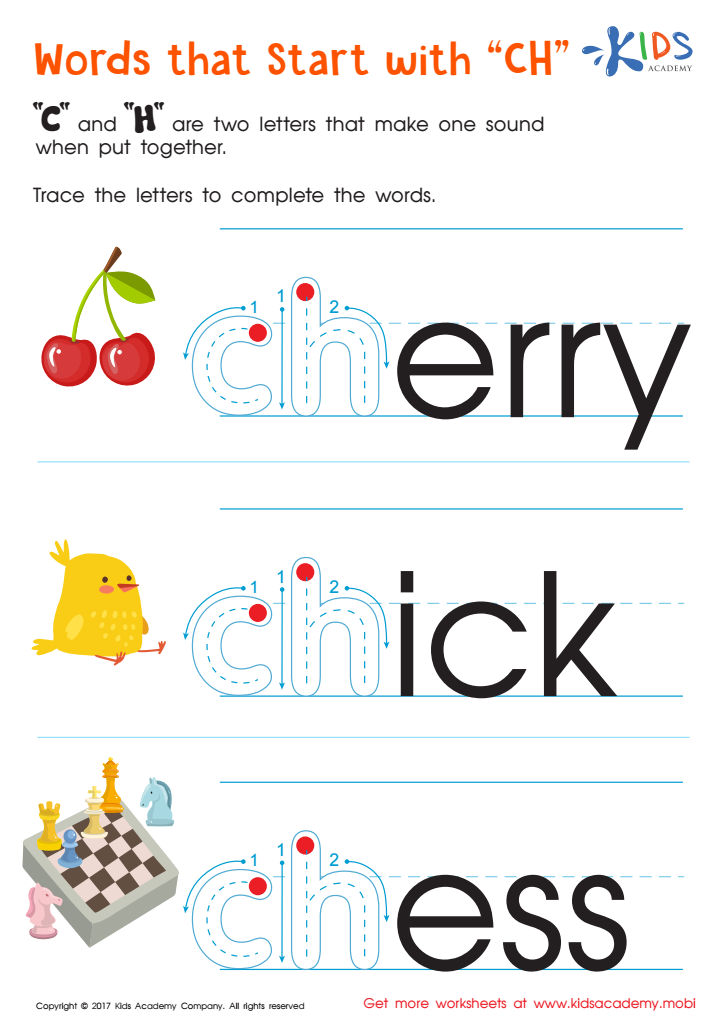

Words That Start with "ch" Spelling Worksheet
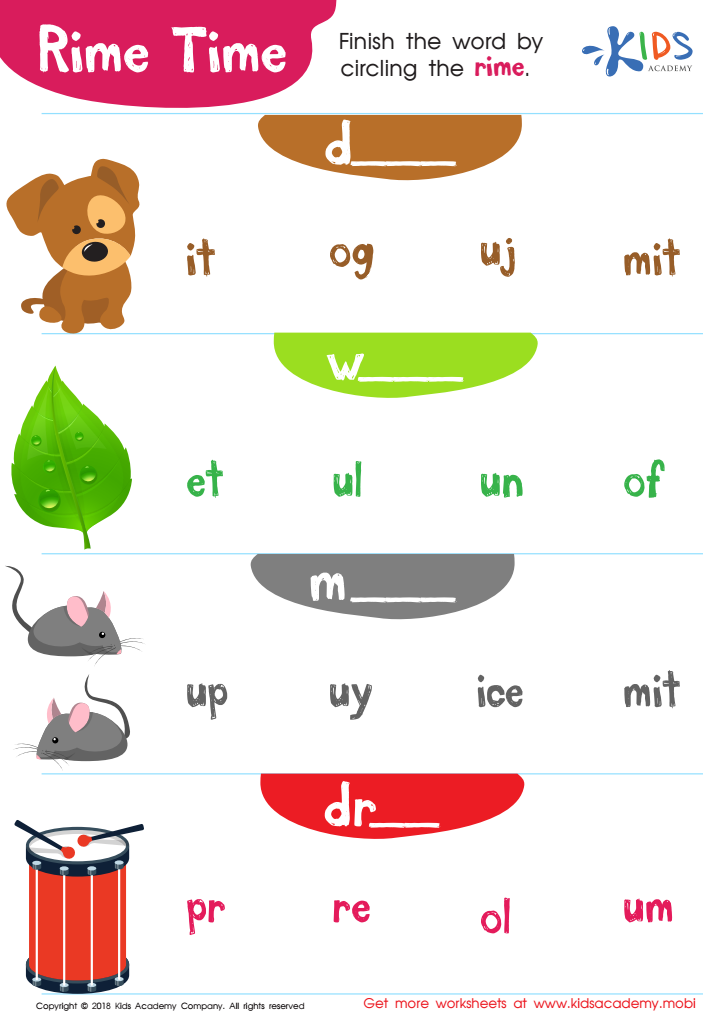

Rime Time Worksheet
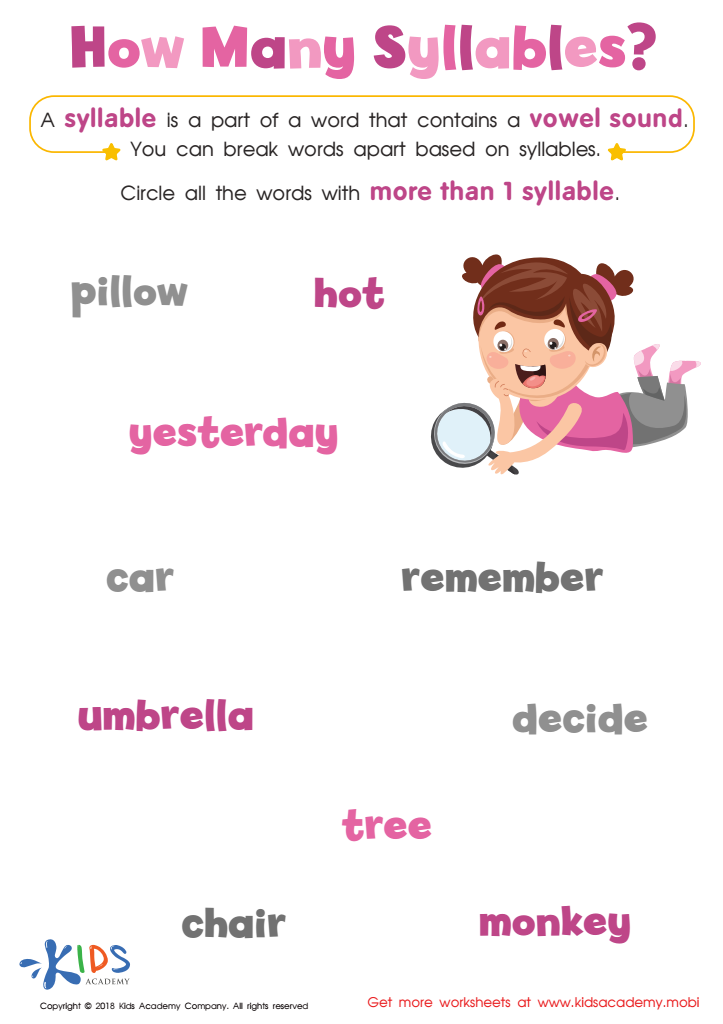

Reading: How Many Syllables Worksheet
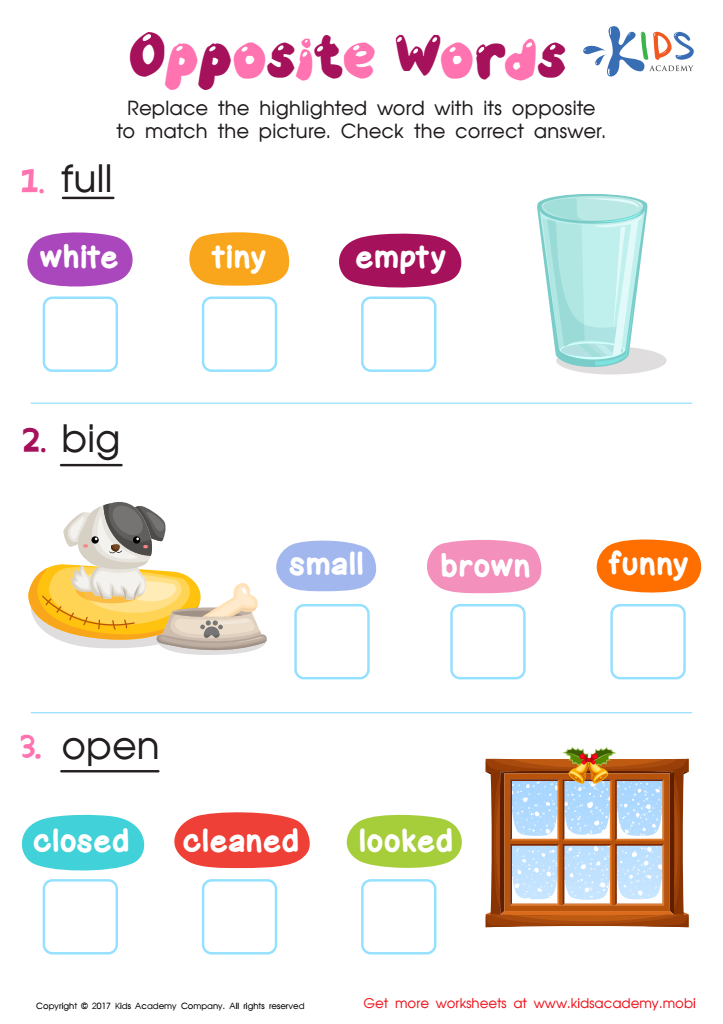

Opposite Words Worksheet
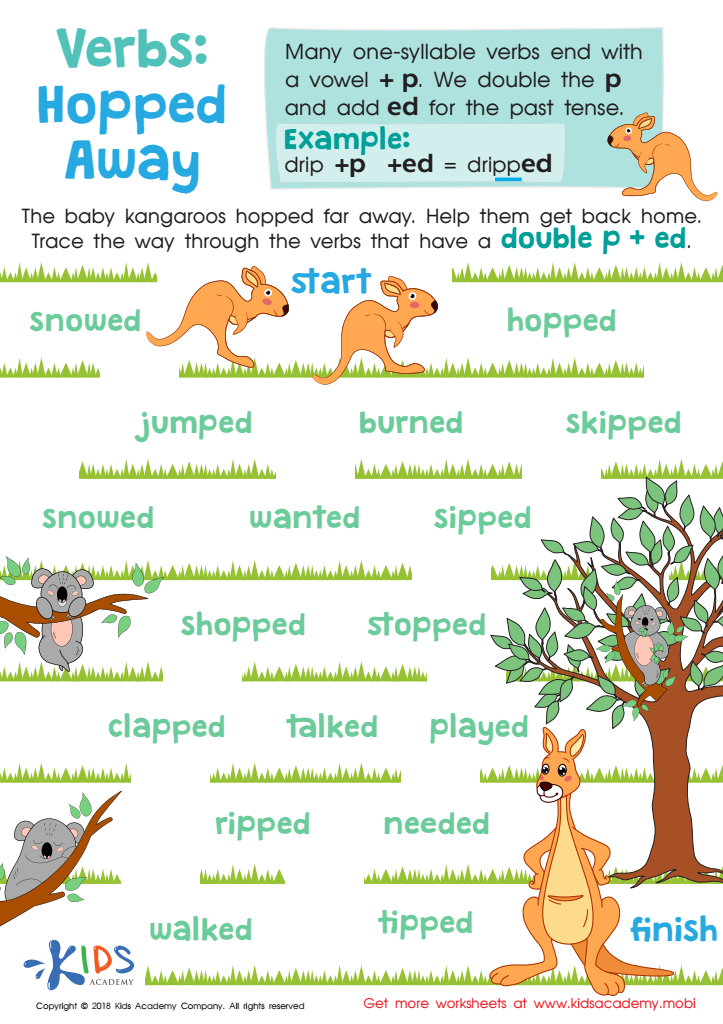

Verbs: Hopped Away Worksheet
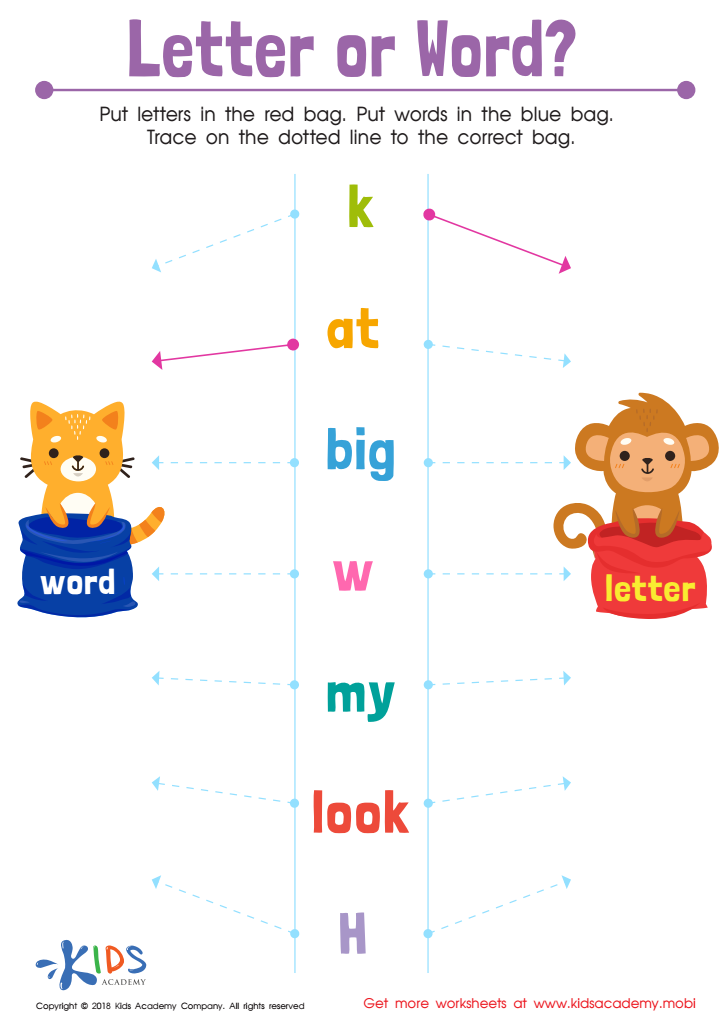

Letter or Word? Worksheet
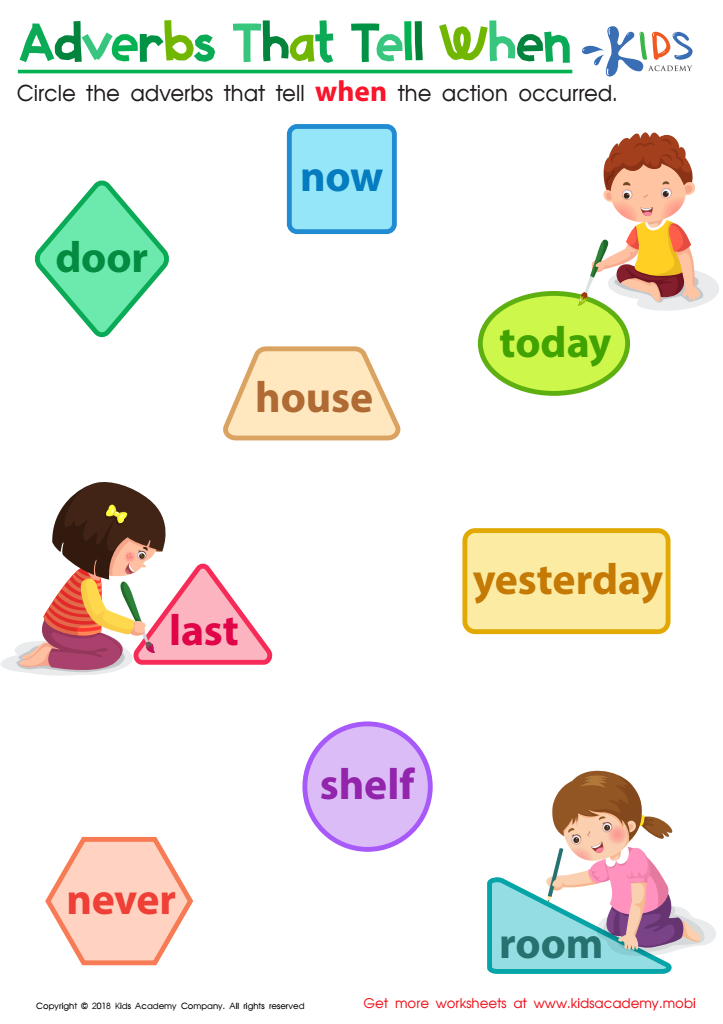

Adverbs That Tell us When Worksheet
Reading skills and grammar are foundational components of early literacy development for children aged 4-7. Parents and teachers should prioritize these skills for several key reasons. First, mastering reading contributes significantly to a child's overall academic success. Early exposure to reading fosters vocabulary acquisition, enhances comprehension, and builds the confidence necessary for exploring complex texts in the future.
Moreover, understanding grammar empowers children to construct sentences accurately, enabling them to express their thoughts clearly and effectively. It encourages strong communication skills that are essential for both written and verbal interactions. Early grammar instruction also helps children make connections between spoken language and its written form, reinforcing their understanding of how language works.
Additionally, fostering reading skills can instill a lifelong love for books and learning. Engaging children with diverse reading materials encourages curiosity and imagination, setting the stage for critical thinking abilities later in life. Furthermore, the bonding time spent reading together and discussing stories strengthens relationships between parents, teachers, and children.
Ultimately, nurturing reading skills and grammar during these formative years lays a solid foundation for lifelong learning, academic achievement, and effective communication, making it crucial for parents and educators to actively promote these abilities.
 Assign to My Students
Assign to My Students
